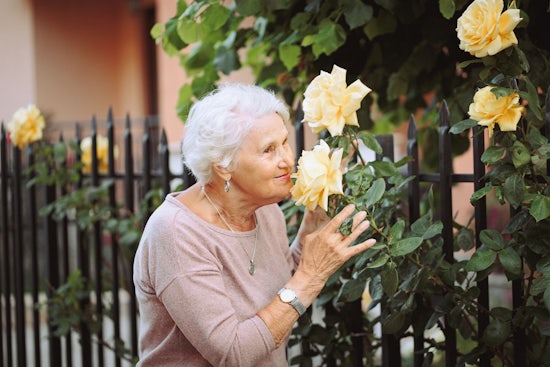New study sniffs out link between memories of smells and cognitive function
Deakin University is conducting a new study to see if training your memory of smells can help improve brain function and reduce the risk of dementia.

An Australian study is about to begin, investigating whether it’s possible to improve cognitive function and reduce the risk of dementia by training our memory through smelling. (Source: Shutterstock)
Deakin University is conducting a new study to see if training your memory of smells can help improve brain function and reduce the risk of dementia.
Lead researcher, Doctor Alex Bahar-Fuchs, said that problems with a person’s sense of smell – also known as the olfactory system – are common in older people.
This can be linked to a decline in cognitive function and neurodegenerative diseases like dementia and Alzheimer’s Disease, but by training your brain through its sense of smell, Dr Bahar-Fuchs says it could be possible to reduce the risk of developing dementia.
“This is not surprising given that [the] areas of the brain responsible for processing smells are also areas affected very early on by pathological processes seen in Alzheimer’s and other causes of dementia,” Dr Bahar-Fuchs says.
International research has paved the way for the Mind Your Nose Study as there is speculation that memory training which engages the olfactory system provides more sensory engagement than visual training.
The study will build on that as researchers will compare the effects of a smell-based Olfactory Memory Training program (OMT) with those of a Visual Memory Training program (VMT).
Participants include older people concerned about changes in their memory and thinking but have not been diagnosed with dementia or Alzheimer’s Disease.
They will be randomly assigned to one of the two memory training programs and will complete four weeks of daily training at home. Results will be collected through three assessments.
Dr Bahar-Fuchs said the results may provide a major breakthrough for dementia prevention research, while it could be instrumental in reducing the risk of harm for older people due to a worsening sense of smell.
“Losing our capacity to smell not only affects quality of life, but also places people at risk for loss of independent living as they are less likely to identify and respond appropriately to smells that indicate danger, such as leaking gas or smoke,” Dr Bahar-Fuchs said.
“If we can improve our memory for smells it has the potential to benefit both conditions.”
If you are interested in taking part and are aged 65 and older, live in metropolitan Melbourne and have concerns about changes in your thinking and memory, you can email study manager Courtney Chesser for more information on myn_study@deakin.edu.au.










